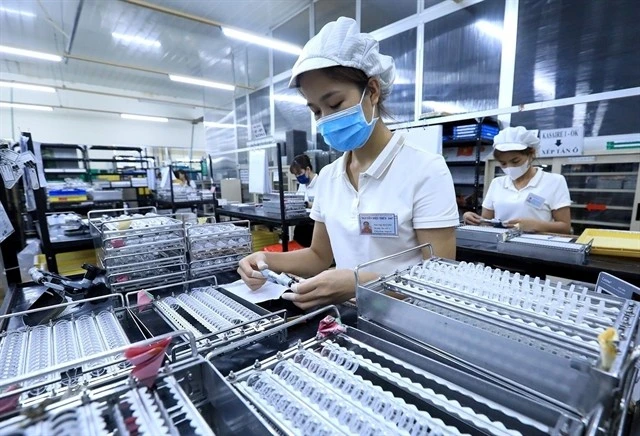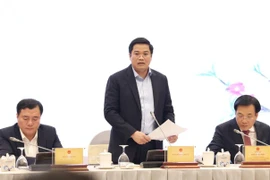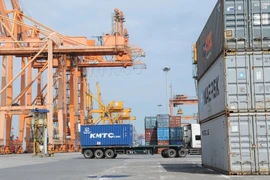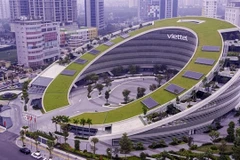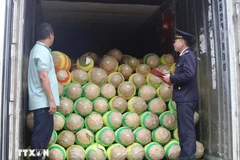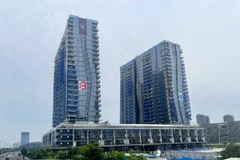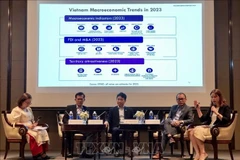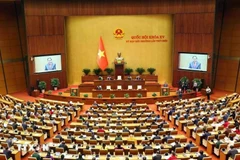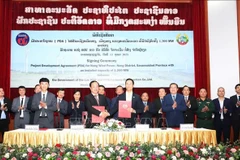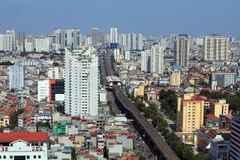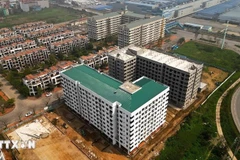Hanoi (VNS/VNA) - To meet the ambitious economic growth target of 8% or more in 2025, experts emphasise the need to reduce business regulations and eliminate procedural barriers that hinder operations of enterprises.
The General Statistics Office (GSO)'s socio-economic report for January 2025 reveals that while over 33,400 newly established or resumed businesses entered the market - marking a 15% increase compared to January 2024 - more than 58,300 businesses withdrew from the market, representing a growth of 8.1% on year.
The high rate of business exits demonstrates the ongoing difficulties within the business sector, signaling that despite improvements in the business environment, more needs to be done to meet the real needs of enterprises.
Former Director of the Central Institute for Economic Management (CIEM) Nguyen Dinh Cung noted that while the private enterprise sector is crucial to Vietnam's economic growth, it still faces significant challenges.
Economic experts agree that the enterprise sector is the backbone of the economy, driving the nation's goal of achieving 8% or more growth in 2025.
However, the difficulties faced by businesses are limiting their contribution to the national economic growth, which could undermine the targets set for 2025 and the subsequent period from 2026-2030.
A report on the supplementary socio-economic development plan for 2025 highlighted that some sectors still face challenging production and business conditions, while the recovery of market purchasing power remains slow.
Key infrastructure projects have stalled, and public investment disbursement has been sluggish. In addition, regulations and policies are not being amended quickly enough to meet practical needs, and some administrative procedures continue to hinder business growth.
GSO General Director Nguyen Thi Huong pointed out that Vietnamese enterprises are facing intense competition from both regional and global markets, particularly in areas like pricing, quality and technology.
In addition, many Vietnamese industrial enterprises still face challenges in terms of technology, management, workers and their ability to participate in the global value chain.
To meet the 2025 growth target, the Government has called for the simplification of administrative procedures and business regulations, ensuring that unnecessary administrative hurdles are eliminated. Moreover, there is a need to prevent the introduction of new and inappropriate procedures and regulations that could increase costs and difficulties for businesses.
The Government has also highlighted the importance of fostering private investment and promoting the development of the manufacturing and processing industries. To support this, ministries, sectors and localities are encouraged to reform administrative procedures, improve the investment and business environment, and expedite the resolution of investment-related challenges.
It is neccessary to give priorities for investment activities from all sectors of the economy, particularly large corporations, State-owned enterprises, and the private sector. There is also a call for amendments to the Investment Law in the form of public-private partnership and to create mechanisms that promote the development of new productive forces and national enterprises.
The Government aims to strengthen the role of State-owned enterprises (SOEs) in investing in large-scale, key projects. Moreover, closer collaboration between SOEs, private enterprises, and foreign direct investment (FDI) companies should be promoted to drive growth.
Dr. Cung emphasised that Vietnam must continue improving the business environment by addressing bottlenecks and creating a more favourable, transparent, reliable, and stable framework for business operations. This approach will ensure a sustainable environment for both domestic and foreign investors.
Minister of Planning and Investment Nguyen Chi Dung also stressed that in addition to maintaining political, economic and social stability, Vietnam must create an environment that attracts investment and fosters business development. This will help strengthen business confidence and encourage long-term investment in the country.
To achieve the 2025 growth target, Huong suggested that Vietnam must enhance support for businesses, particularly small and medium-sized enterprises (SMEs). This includes providing easier access to preferential loans and State support resources, as well as reducing and simplifying regulations related to business operations.
State agencies should promote digital transformation and innovation in businesses, while also offer market information and legal support, particularly in key export markets such as Europe, the US, Canada and Japan./.
